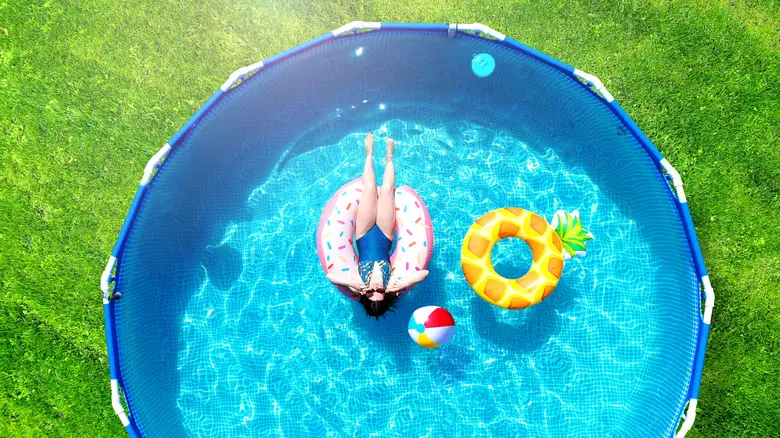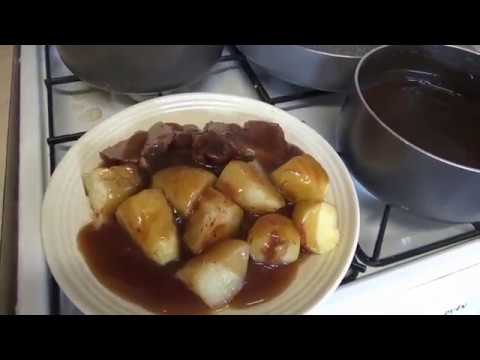Pasta is a staple food that is enjoyed by many cultures worldwide. It’s a versatile ingredient used in multiple dishes, from spaghetti bolognese to lasagna. However, the question remains- can tap water be used to boil pasta? In this article, we will explore the science behind boiling water, tap water quality, contaminants in tap water and their impact on health, and methods to filter and purify tap water.
Overview of Tap Water
Tap water is the most common source of drinking water for households globally. According to WHO, tap water comes from two primary sources – surface water and groundwater. Surface water comes from lakes, rivers, or reservoirs that are then treated before distribution. Groundwater comes from underground wells that are pumped out and treated before being supplied for household use.
Tap water goes through multiple treatment processes before it reaches our homes such as coagulation, filtration, disinfection and pH correction.
Overview of Pasta
Pasta is a dish made from wheat flour mixed with eggs or water. It originated in Italy but quickly spread around the world as an easy-to-make meal that can be served in various ways. There are different types of pasta shapes such as spaghetti, penne rigate, fusilli etc., allowing for versatility in cooking styles.
The Science Behind Boiling Water
Boiling point refers to the temperature at which a liquid vaporizes into a gas while undergoing constant temperature pressure conditions Chemical Education Digital Library. While boiling occurs at 100°C (212°F) at sea level, it varies depending on several factors such as pressure and altitude. In high altitudes like mountains, the air pressure is lower than at sea level resulting in a lower boiling point for water.
Contaminants in Tap Water
Although tap water goes through various treatment processes, there are still contaminants that leach into the water source. Common tap water contaminants include bacteria, viruses, chemicals like lead and pesticides. These contaminants can have adverse impacts on health ranging from acute effects like stomach upset to chronic effects such as cancer.
Risks Associated With Using Contaminated Tap Water to Boil Pasta
Boiling pasta requires that it is submerged in water until cooked. Submerging pasta in contaminated tap water can expose individuals to harmful chemicals and viruses. The toxins present may also affect taste and quality making the pasta unfit for consumption.
Methods to Purify and Filter
There are different ways to purify and filter tap water including:
Water Filtration System
This is a system used to remove impurities by passing the water through a filter media e.g activated carbon which adsorbs impurities from the water stream.
Boiling Method
Boiling tap water for 1-3 minutes before use kills microorganisms reducing possible contamination levels however this method might not be effective against chemical impurities
Chlorination
Chlorine kills biological impurities removing bacteria or viruses; however this doesn’t completely guarantees removal of all chemical impurities
The Potential Benefits And Drawbacks Of Using Filtered Versus Unfiltered Tap Water For Cooking
Pros And Cons For Both Methods
Using filtered tap water for cooking eliminates contaminants that might distort the taste of food while unfiltered tap water maintains minerals required for homeostasis i.e calcium , magnesium . However both methods require careful handling of temperature conditions to prevent over-concentration or under-nutrition deficiency of these minerals.
Health Impacts
Using filtered water prevents health risks associated with exposure to toxic chemicals while using unfiltered water conservation of essential minerals required by the body which helps in preventing mineral deficiency diseases.
Environmental Impact
Water filtration systems require regular maintenance and replacement of filters ,boiling needs a lot of energy use which can impact the environment negatively.
Conclusion
Boiling pasta is a common practice in households. However, the quality of tap water used to boil the pasta can be detrimental to our health. Contaminants such as bacteria, viruses, and chemicals can harm individuals exposed to them. While there are different methods of avoiding contamination like boiling and chlorination, filtering tap water is an efficient and effective method for removing impurities that could potentially affect overall health. It is important that everyone understands the importance of clean drinking/cooking water while maintaining awareness of contaminants found in their tap water supply .
Q&A
- Q: Is it safe to use tap water for boiling pasta? A: Yes, it is safe to use tap water for boiling pasta as long as the water in your area is drinkable. If you have any concerns about the quality of your tap water, you can always opt for bottled or filtered water.
- Q: Will using tap water affect the flavor of my pasta? A: Generally, tap water should not affect the flavor of your pasta significantly. However, if you notice a distinct difference in taste or your tap water has a strong chemical smell or taste, you may want to consider using alternative sources of water.
- Q: How can I make sure my tap water is safe for cooking pasta? A: If you have any doubts about the safety of your tap water, you can contact your local water authority to ask for more information on its quality. You can also invest in a simple home test kit to check for contaminants such as chlorine, lead, or bacteria.
- Q: Are there any benefits to using tap water instead of other types of water? A: Using tap water for boiling pasta is generally more cost-effective and convenient than buying bottled or filtered waters. Additionally, some studies suggest that drinking tap water may provide health benefits due to its mineral content and fluoride levels (although this may depend on where you live).




